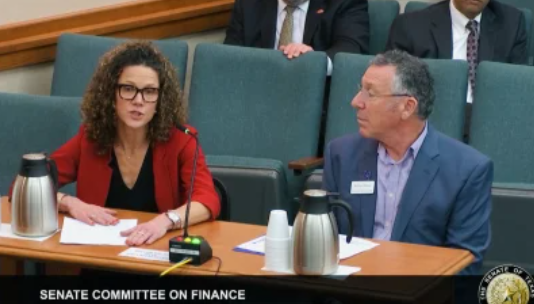
The Texas state capitol.
On November 4, 2025, Texas voters approved Proposition 14, a ballot measure that enables a historic $3 billion state investment in brain disease research over the next decade. With this vote, Texas takes a decisive step toward transforming the future of brain health and establishing itself as a model for other states and the federal government.
The passage of Proposition 14 marks the first time a U.S. state has committed funding on this scale to power and expand neurodegenerative disease research. This funding will be used to support the Dementia Prevention and Research Institute of Texas (DPRIT), a new state initiative to advance understanding and treatment of brain diseases including Parkinson’s.
A Bold New Model for State Investment in Research
This moment was set in motion earlier this year when the Texas legislature passed Senate Bill 5, which created DPRIT and proposed the $3 billion in research funds. The legislation requires that at least 95 percent of the funds — disbursed at $300 million annually — be awarded as research grants, ensuring that most of the state resources directly support scientific discovery.
DPRIT also aims to expand access to clinical trials and strengthen the state’s workforce dedicated to brain health. In addition to the promise of progress through research, the state hopes that this investment will bring startups and companies to Texas, leading to job creation and new economic activity. DPRIT is modeled after the Cancer Prevention and Research Institute of Texas (CPRIT), which voters approved $3 billion to fund in 2007. According to the state, CPRIT has conducted nearly 375 clinical studies, attracted an additional $11 billion in non-state funding and brought 340 cancer researchers to Texas, among other achievements.
“Texas has shown us what’s possible when the Parkinson’s community rallies together,” said Dan Feehan, chief policy and government affairs officer at The Michael J. Fox Foundation (MJFF). “Proposition 14 is a historic, pace-setting example of how government can invest in science to improve the lives of constituents. Other states and the federal government should look to Texas as a model for bold, forward-looking investment in public health.”
“Other states and the federal government should look to Texas as a model for bold, forward-looking investment in public health.”
How the Parkinson’s Community Shaped Proposition 14
When Senate Bill 5 was first introduced, its scope was limited to research on dementia. MJFF worked closely with Texas lawmakers, advocates and local partners including the Houston Area Parkinson Society and the Dallas Area Parkinson Society to ensure that Parkinson’s disease was added to the legislation. With this amendment, Parkinson’s research projects will be eligible for DPRIT’s grant funding.
To urge the legislature to pass the bill, Texans living with Parkinson’s disease, families and care partners testified before legislative committees, sharing their personal stories and emphasizing the need for faster progress in research and care. Their advocacy helped secure bipartisan support for the bill and paved the way for this week’s historic vote.
One of those advocates, Keri Shaw of Austin, is a single mother of two college-bound daughters who was diagnosed with early-onset Parkinson’s disease in 2021. She’s passionate about the need for research to include patient voices. “The MJFF policy team knows how to fire you up and help you understand that your voice matters,” Keri said. “I was scared to testify [for Senate Bill 5], but the team told me ‘You’re great. You’ve got this.’ That made all the difference.”

“There is so much power in the voices of the Parkinson’s community — they are the experts,” said Julia Pitcher, director of state government relations at MJFF. “The courage and candor to talk about navigating life with Parkinson’s reminds us that behind every policy win, every research breakthrough, there are people and families counting on us.”
“Behind every policy win, every research breakthrough, there are people and families counting on us.”
After the Texas legislature passed Senate Bill 5, Texas Governor Abbot (R) signed it into law. As the final step of the legislative process, the $3 billion investment was put forth for citizen approval via Proposition 14.
Before the November vote, MJFF and our Texas-based advocates launched our “Yes on Proposition 14” campaign to educate Texans about the ballot measure. John Reyes of Richmond and Esther Labib-Kiyarash of El Paso shared their personal experiences living with Parkinson’s in short videos featured in media across the state. Other supporters spoke with friends, family and neighbors to earn their votes and underscore the urgent need for better treatments and cures for progressive brain diseases like Parkinson’s.
Looking Ahead to 2026
With Proposition 14 now approved, the state’s next step will be to formally establish DPRIT, appoint its governing board and begin the process of defining research priorities and awarding $300 million in grants every year for the next 10 years. Continued advocacy will be key to ensuring DPRIT delivers on its goals.
Beyond the Lone Star State, MJFF will take its efforts to secure public funding for Parkinson’s research across the country. Join us by signing up for the Parkinson’s Policy Network, our nationwide community of advocates shaping government policies that prioritize research and improve lives. As a member of the network, you’ll receive advocacy tools, updates and opportunities to take action when your voice is needed most.